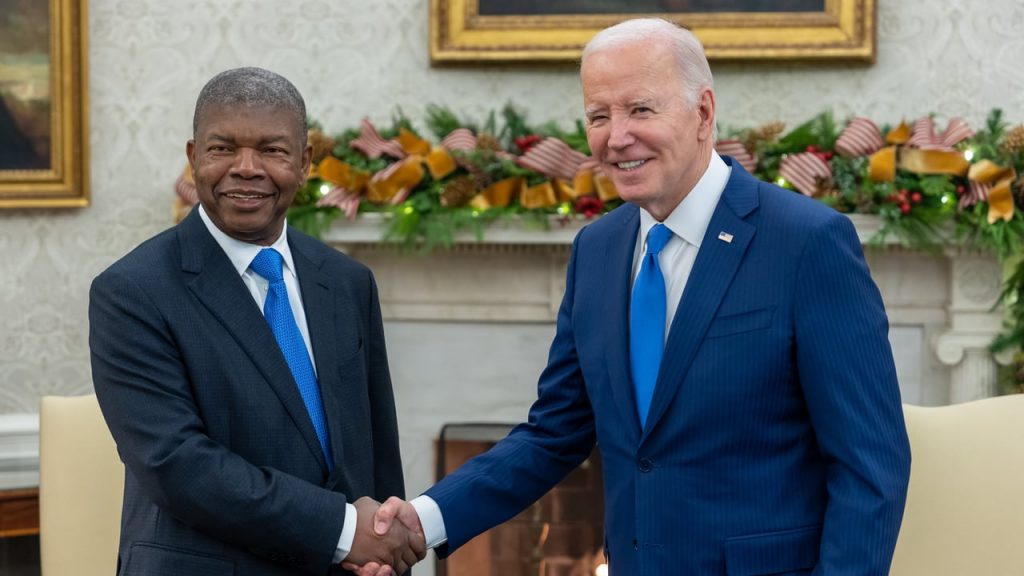With just a month remaining before outgoing U.S. President Joe Biden transfers power to President-elect Donald Trump, Biden is making a high-stakes visit to Angola. This trip underscores the administration’s commitment to advancing the Lobito Corridor, a pivotal infrastructure project connecting Angola, Zambia, and the Democratic Republic of Congo—Africa’s leading copper hubs. The corridor is vital in the global race for critical minerals, foundational to the electric vehicle and renewable energy revolution.
This initiative has intensified competition between the United States and China, the world’s leading economies, as they vie for influence over Africa’s resource-rich regions. Biden’s presence reflects a strategic push to solidify U.S. partnerships in a region central to his administration’s global infrastructure strategy.
Additionally, this visit serves to address uncertainties surrounding the transition of U.S. leadership in 2025. Analysts are actively assessing potential shifts in policy under Trump’s administration, with scenarios ranging from recalibrated foreign engagement to shifts in investment priorities. The visit aims to provide clarity on continuity and U.S. intentions in the region.
Biden’s policies have targeted infrastructure, climate change, healthcare, technology, global trade, and workforce development with a strong emphasis on domestic manufacturing, sustainability, and reducing economic inequalities. Some key areas of interest to be likely discussed during his visit include:
Infrastructure Investment: The primary focus of the visit is on infrastructure investment, specifically in the Lobito Railway project. This is one project that the US are signalling interests in the critical minerals race and will not only allow minerals to be exported through Atlantic Ocean ports but will open up Africa to other countries on the western front. Africa is a darling to many developed nations to the extent that it is in the US best interests to do business with Africa.
Read also: Why President Hichilema’s Angola Visit is Critical for Zambia’s Economic Trajectory
Anchor Stakeholders: The meeting will include the Presidents from Zambia, Angola, and other public and private stakeholders to discuss the current and future commitments to the railway project. The project has already attracted key funders from the US government, Africa Finance Corporation (as lead project developers), European Union and other financiers.
Strategic Importance: The DRC and Zambia are set to hold 10% of the world’s copper and cobalt deposits, which are vital for the global energy transition. This makes them key drivers of US multibillion-dollar investments in the region. The two nations have strategic plans to ramp production to records with the DRC flirting with highs of 2.5 million metric tones as Zambia targets 3 million metric tons by 2031 supported by aggressive explorations and huge mining investments in energy generation, production ramp ups and bigger smelter capacities.
Competition with China: While the US is fortifying its business footprint in Africa China will be looking to do the same. Angola’s primary trading partner is China ($22.6 billion), which significantly outpaces the US ($2.2 billion) likely explaining why Biden trip is critical. This presents a substantial challenge for the US in the region.
Global Trade Opening: While this visit is centric to the US, it also aims to open up the region to trading partners from South America, Europe, and the Western Hemisphere. A successful corridor will diversify markets and trade partners for Southern and East Africa. Africa is at a very critical stage of its economic lifecycle with trade identified as the lifeblood for future growth and a solution to currency pressures.
Angola’s Privatisation Drive: Biden comes at a time that Angola has made strides to privatise its transport and logistics industry, a step it has taken towards modernisation and attracting more foreign investment.
With the forecast trades wars between US and China, Africa remains fertile ground for trade and offers a massive market and source of resources. Vying the Lobito will be the TAZARA rail that China has committed to revamp with $1 billion in investment connecting Zambia to Tanzanian port of Dar -es – salaam.
About the Lobito Project: The Lobito Corridor project, is aimed at enhancing transport infrastructure across Angola, DRC and Zambia, with an estimated cost ranging between $1 billion and $2.3 billion. A significant component of this initiative is the Lobito Atlantic Railway (LAR), a joint venture involving Trafigura, Mota-Engil, and Vecturis – a consortium that has committed to investing approximately $455 million in Angola and up to $100 million in the DRC for the refurbishment of existing railway infrastructure and procurement of rolling stock. Additionally, the U.S. International Development Finance Corporation (DFC) has approved a $553 million loan to support the development of the LAR, underscoring the project’s international backing. Lobito also includes refurbishing the Benguela rail line and plans for a new railway to connect Angola, Zambia, and the DRC with a focus on economic integration and reducing trade transit.
The Kwacha Arbitrageur

